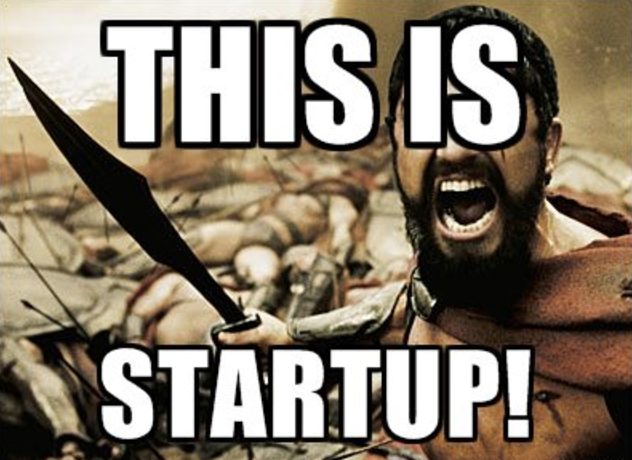
For those of you who only know me from Handshakin.com, you may not realize that we also own and organize the Startup Meetup Pitch Battle groups around the US (and we totally just passed 10k followers on Instagram!). We're in Denver, Boston, Atlanta, Austin, Phoenix, LA, San Francisco and more...
What is a Pitch Battle you ask? An event where 4 startups pitch to a panel of investors and judges for 5 minutes. Here's how to prepare and make the most of these events:
Startups apply on our website and we look for the ones that have the most traction. From sales, to funding, or another type of impressive metric (your job to sell us and investors).
This could be a funded Kickstarter campaign, or an significant amount of email sign-ups.
No, you don't win money by placing 1st at our event. But, one startup raised $1.2M from contacts he met at our event. That was June 2015, and our events have only gotten bigger and attracted more investors since then.
[video:https://youtu.be/_gWIYoCmMoY autoplay:0]
If you've got the skills to be accepted to pitch your startup, here's 5 tips to prep for and maximize the event.
- Know your goal. This should be consistent in your pitch, your conversation, and your overall interactions at the event.
Common reasons that entrepreneurs pitch are to gather feedback on their app, raise funding on the marketplace, or simply to get more email sign-ups from the audience.
I asked past pitcher Devin Eldridge, Founder of Stow, what his goal was from pitching at our events. He responded, "The goal of a pitch is to get a meeting. Stir emotion, create a sense of traction and progression that investors want to be a part of."
- Research who's attending. Take a moment and try to find who is judging the event, who is organizing the event, and some of the audience members. Are they your target market? Target investor?
The best pitchers are like the entrepreneurs on Shark Tank--they know the investors and judges backgrounds then leverage that to get highly tailored feedback.
- Create a deck that enhances your pitch. We are constantly educating our pitchers to use images, videos, and minimal wording on their pitch deck. You should lead the presentation and your deck is a tool to enhance your presentation and convey more information faster.
Our pitches are just 5 minutes, so if you have even just one paragraph on one slide, you're probably distracting the audience and judges from what you're saying. Be sure to practice and know what 5 minutes feels like.
- Be humble. Remember that audience members, organizers and judges are giving you their valuable time to hear your idea.
At our January pitch battle, one entrepreneur made an example of being humble with his flying drone jumbotron startup while another alluded to being above the feedback and defended himself instead of listening to the judges.
The result? The audience and investors gravitated to the humble entrepreneur; because he had shared himself, they wanted to give back to him and help.
When you defend yourself against the judges, you're simply showing everyone in the room how unreceptive to feedback you are. You're pitching for feedback, listen to what people have to say!
The startup community can relate to you when you’re vulnerably sharing your goal and are unafraid to ask for the help you need. After all, why else come to a pitch event if not to learn and grow? All of us have been there, we understand the challenges and are here to help.
- Network. Obviously, this is an important one, especially to us over here at Handshakin'. To keep it simple though, here's what I want you to do.
Find 2-4 people maximum that you want to connect with, stalk their pictures online, and make sure you meet them either before or after the pitch.
If you're really savvy, you'll know who the judges are and introduce yourself before the event starts.
I asked my co-organizer, Mike Kilcoyne, to comment on this one, "Our guest lists are open for a few reasons: we want you to come to our events PREPARED to meet awesome people."
Does that help? Invest a little time prior to the event to maximize the value you can out of pitching publicly.
Yes, I know your next question--What makes a good 5 minute pitch?
That depends on where you're pitching.
Here's our judging criteria:
- Ability to Execute
- Idea
- Investibility
- Revenue
- Presentation
With that being said, I'd say the best pitches I've seen touch on the following and not much more:
- Vision
- Market
- Problem
- Solution
- Data
- Business Model
- Validation
- Team
- Call to Action
I'm always surprised by the pitchers that don't have a strong call to action. You're pitching for a reason, make it loud and clear. With contact information being marketed all over your deck.
Find your strong suit. Some startups choose to spend more time talking about their team, others talk about their rapidly growing mailing list. Decide what makes you stand out and point everyone's attention to it!
I hope this is helpful for all the aspiring entrepreneurs reading this, and if you're interested in pitching your startup or learning more, start here.
Originally posted at www.handshakin.com.





.jpg)
